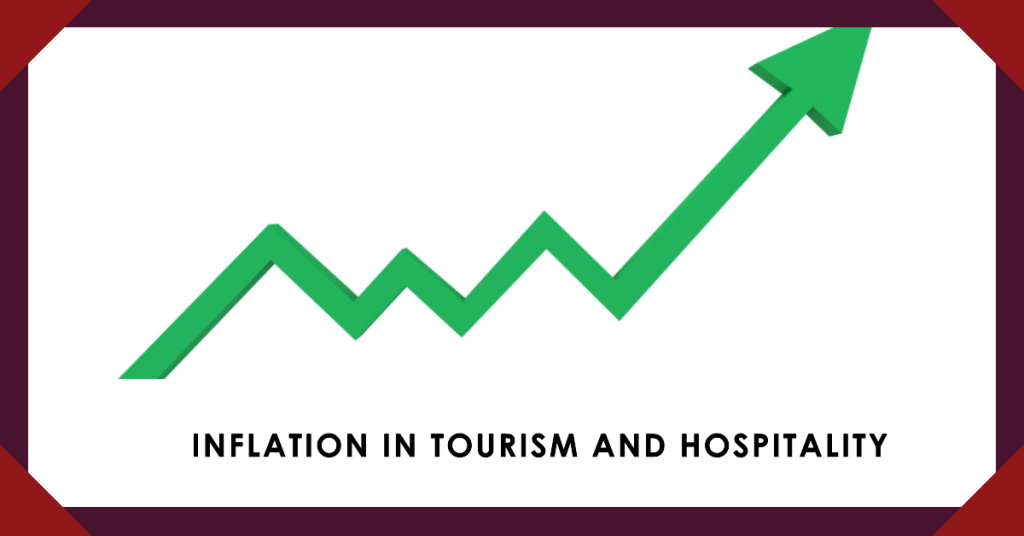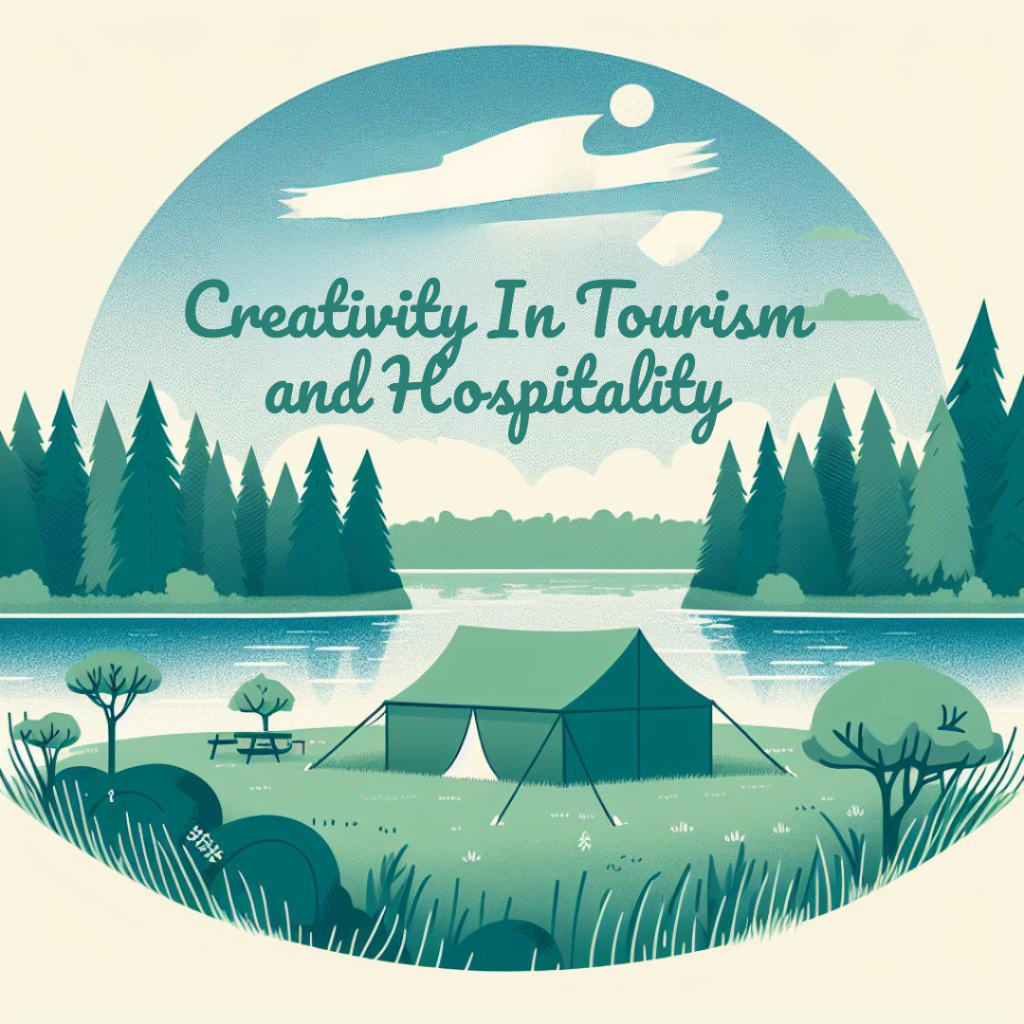The travel, tourism and hospitality industry is one of the largest and most dynamic sectors in the world, contributing to economic growth, job creation, and social development. However, it is also one of the most vulnerable and complex sectors, facing multiple challenges that affect its performance, resilience, and sustainability.
In this article, we will explore some of the main challenges that investors in the travel, tourism and hospitality industry have to deal with, such as inflation, geopolitical instability, sustainability, technology, and creativity.
We will also discuss some of the strategies and solutions that can help investors overcome these challenges and seize the opportunities that the tourism market offers.
Some challenges that investors may face are.

1.Inflation
Inflation can affect investment in tourism, travel and hospitality in several ways. Some of the impacts are shown below:
Higher costs: Inflation can increase the cost of travel and tourism products and services, such as transportation, accommodation, food, entertainment, etc. This can reduce the profitability and competitiveness of tourism businesses and investors.
Lower demand: Inflation can also reduce the purchasing power and disposable income of consumers, making them less willing or able to spend on discretionary travel and tourism activities. This can affect the demand and revenue of tourism businesses and investors.
For example, a survey by Statista showed that 56% of respondents would lower their extra activities, 55% would shorten their length of stay, and 53% would choose destinations closer to home due to inflation.
Uncertainty: Inflation can create uncertainty and volatility in the tourism market, making it harder for businesses and investors to plan, budget, and forecast their operations and returns. This can affect their confidence and decision-making in the tourism sector.

2. Geopolitical instability
Geopolitical instability can affect investment in tourism, travel and hospitality in several ways. Some of the impacts are:
Lower capital investment: Geopolitical risks, such as wars, conflicts, terrorism, sanctions, etc., can discourage domestic and foreign investors from investing in the tourism sector, as they increase the uncertainty and risk of losses. For example, a study by Akadiri et al. (2021) found that geopolitical risks negatively affect capital investment in tourism in 18 developing economies.
Reduced tourism demand: Geopolitical risks can also affect the demand and behaviour of tourists, who may avoid or cancel their travel plans to destinations that are perceived as unsafe or unstable. This can reduce the revenue and profitability of tourism businesses and investors.
Higher volatility: Geopolitical risks can create volatility and fluctuations in the tourism market, making it harder for businesses and investors to plan, budget, and forecast their operations and returns. This can affect their confidence and decision-making in the tourism sector. For example, a study by Yilmaz et al. (2020) found that global and local geopolitical risks cause the return and volatility of tourism stocks in emerging economies.

3. Sustainability
Several ways exist in which sustainability can impact investment in the tourism, travel, and hospitality sectors. Some of the most prominent impacts include:
Higher green investment: Sustainability can encourage more investment in green and clean tourism products and services, such as renewable energy, waste management, eco-friendly transportation, etc. This can help reduce the environmental impact and carbon footprint of the tourism sector. For example, UNCTAD is promoting green investments in tourism for sustainable development through its World Investment Forum.
Higher social and environmental returns: Sustainability can also generate more social and environmental benefits from tourism investment, such as economic growth, job creation, poverty reduction, biodiversity conservation, cultural preservation, etc. This can enhance the positive impact and value of tourism for the host communities and destinations. UNWTO is developing sustainable investment mechanisms by partnering with key stakeholders to mobilize resources with a positive impact on tourism.
Higher resilience and competitiveness: Sustainability can also improve the resilience and competitiveness of the tourism sector, as it can help cope with the challenges and opportunities of climate change, pandemics, digitalization, etc. This can increase the attractiveness and profitability of tourism businesses and investors. The World Bank has found that each dollar invested in protected areas and nature-based tourism creates a sixfold return, helping boost green recoveries.

4. Technology
Technology plays a significant role in shaping investment decisions across the tourism, travel, and hospitality sectors. Its influence manifests in various ways, including.
Higher efficiency and convenience: Technology can improve the efficiency and convenience of tourism services, such as online booking, digital check-in, keyless entry, virtual concierge, etc. This can enhance the customer experience and satisfaction, as well as reduce the operational costs and time for businesses and investors. A study by McKinsey found that digital check-in and kiosks can reduce front-desk labour costs by 40%.
Higher innovation and differentiation: Technology can also foster innovation and differentiation in the tourism sector, such as new IT services, high-technology exports, mobile applications, etc. This can create new opportunities and markets for tourism businesses and investors, as well as increase their competitiveness and value proposition. For example, a study by Tourism Embassy found that the use of new technologies in tourism has provided very exclusive services all across the globe.
Higher challenges and risks: Technology can also pose some challenges and risks for the tourism sector, such as cyberattacks, data breaches, privacy issues, ethical dilemmas, etc. This can affect the security and trust of customers, as well as the reputation and profitability of businesses and investors. Moreover, technology can also lead to a decline in face-to-face interaction and customer service quality. A study by Goroboted found that technology can lead to increased expenses for businesses, as they must invest in new hardware and software.

5. Creativity
Creativity’s influence on investment in tourism, travel, and hospitality is multifaceted. Here’s a closer look at some of the key impacts:
Higher innovation and quality: Creativity can foster innovation and quality in the tourism sector, such as new products, services, experiences, etc. This can help tourism businesses and investors to improve their performance, efficiency, and customer satisfaction, as well as to stay competitive and adaptable to new customer needs.
IJTAH’s research reveals a positive link between organizational creativity and tourism companies’ success. This correlation stems from creativity fostering innovation, improved services, enhanced efficiency, high-quality offerings, and strong performance, all of which equip tourism companies with the tools to maintain their competitive edge and adapt to the evolving needs of their customers.
Higher culture and heritage: Creativity can also enhance the culture and heritage of the tourism sector, such as arts, crafts, festivals, traditions, etc. This can help tourism businesses and investors to create more value and meaning for the local communities and visitors alike, as well as to preserve and promote the cultural diversity and identity of the destinations.
Higher empowerment and participation: Creativity can also empower and involve the tourism sector, such as local entrepreneurs, artists, residents, etc. This can help tourism businesses and investors to create more opportunities and markets for the creative industries, as well as to increase their collaboration and co-creation with the stakeholders. Moreover, creativity can also attract more tourists who are interested in learning and engaging with the local culture and creativity. UNDP is introducing creative tourism as a valuable tool for community empowerment.
Strategies to overcome challenges of investing.
We have seen above the main challenges in investing in Travel, Tourism and Hospitality, so how can the stakeholders overcome the stated challenges?
Some of the strategies and solutions that can help investors overcome the challenges of investing in the travel, tourism and hospitality industry are:
Reducing the seasonality of demand: This can help investors to optimize the use of resources, reduce costs, and increase revenues throughout the year. Some ways to achieve this are diversifying tourism products, targeting different market segments, promoting off-peak travel, and offering incentives and discounts.
Addressing the impact of tourism transport: This can help investors reduce the environmental and social impacts of tourism mobility, such as greenhouse gas emissions, congestion, noise, etc. Some ways to achieve this are adopting low-carbon technologies, enhancing public transport, encouraging active travel, and implementing sustainable mobility plans.
Improving the quality of tourism jobs: This can help investors to attract and retain qualified and motivated staff, as well as to improve their productivity and performance. Some ways to achieve this are offering fair wages and benefits, providing training and career development opportunities, ensuring health and safety standards, and fostering a positive work culture.
Maintaining and enhancing community prosperity and quality of life: This can help investors create positive impacts for the local communities, such as income generation, social inclusion, cultural preservation, etc. Some ways to achieve this are engaging with the stakeholders, supporting local businesses and suppliers, respecting local values and norms, and contributing to social and environmental causes.
In conclusion Investing in the travel, tourism and hospitality industry can be a rewarding and profitable venture, but it also entails some challenges and risks. Therefore, investors need to adopt effective strategies and solutions to overcome these challenges and ensure a sustainable and responsible tourism development. By doing so, they can create value for themselves, their customers, their employees, and their communities.




